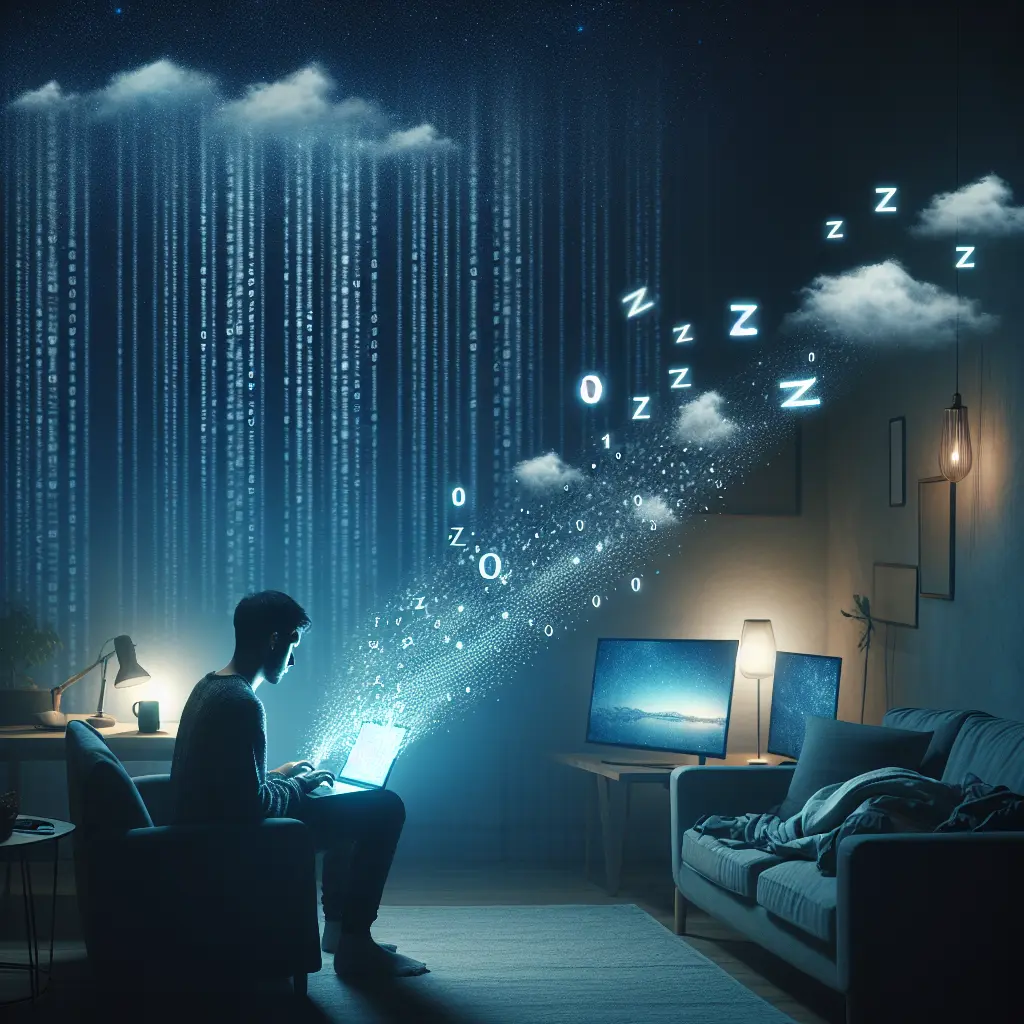
In today's hyper-connected world, the need for a digital detox has never been more apparent. As smartphones become inseparable from our daily lives, they often encroach upon the sanctuary of our sleep. Achieving restful sleep is increasingly difficult as screens disrupt our natural sleep cycles. Understanding and implementing strategies for disconnecting for sleep can lead to profound improvements in sleep quality and overall well-being.
Understanding the Impact of Technology on Sleep
With the rise of Problematic Smartphone Use (PSU), many individuals find themselves tethered to their devices. This dependency affects not only our waking hours but also seeps into our sleep. The blue light emitted by screens is notorious for hindering melatonin production, a hormone essential for sleep. To achieve optimal sleep hygiene, a technology-free bedtime becomes crucial.
A 2024 study published in the Journal of Sleep Research highlights the detrimental effects of screen time before bed, revealing that even one hour of smartphone use can delay sleep onset by up to 30 minutes. The art of disconnecting involves recognizing these impacts and taking actionable steps to mitigate them.
Embracing Technology That Supports Digital Detox
Interestingly, the tech industry is responding to this need with innovative solutions. HMD Global's announcement of the anti-smartphone, designed to reduce screen time and social media use, marks a pivotal shift towards promoting healthier digital habits. This device aims to offer features that encourage users to unplug for better sleep, enhancing their bedtime routine by minimizing distractions.
Additionally, HMD's new Skyline smartphone incorporates features that allow users to block all notifications and contacts, reinforcing a screen-free sleep environment. These technologies can be vital tools in the quest for better sleep tips and improved mental clarity.
The Benefits of a Structured Bedtime Routine
Establishing a bedtime routine that prioritizes relaxation over stimulation is key to disconnecting effectively. A consistent routine signals to your body that it is time to wind down, optimizing your sleep cycle. Incorporating evening relaxation techniques such as gentle yoga stretches or mindfulness meditation can significantly improve sleep quality.
Case studies have shown that individuals who engage in a technology-free bedtime routine experience reduced stress levels and enhanced sleep hygiene. For instance, participants in a 2023 pilot program reported improved mental clarity and emotional balance after incorporating screen-free activities like reading or journaling before bed.
Exploring Digital Detox Retreats for Restful Sleep
For those seeking a more immersive experience, luxury resorts worldwide are offering digital detox retreats. These sanctuaries provide an opportunity to unplug entirely, fostering an environment conducive to deep rest and relaxation. From Sedona's healing energy to the serene Phu Quoc island in Vietnam, these retreats offer unique settings for sleep optimization.
The benefits of a digital detox extend beyond better sleep tips. By removing the constant barrage of digital notifications, guests often find renewed focus and a deeper connection with nature, elements essential for long-term wellness.
Addressing Challenges in Disconnecting
Despite these promising developments, disconnecting from technology poses challenges. Recent events underscore how reliant we are on digital devices. For example, a cyberattack in Singapore wiped out students' notes just before exams, highlighting the anxiety tied to unexpected digital detoxes.
However, these incidents also serve as reminders of the importance of developing resilience against technological dependency. By gradually integrating technology-free practices into daily life, individuals can foster a healthier relationship with their devices.
Conclusion: Embrace the Art of Disconnecting for Restful Sleep
In today's digitally-driven society, reclaiming restful sleep necessitates a conscious effort to disconnect from technology. The pervasive influence of screens disrupts our natural sleep cycles, with the blue light from smartphones significantly hindering melatonin production. Acknowledging this impact and adopting strategies for digital detox are vital steps toward enhancing sleep quality and overall well-being.
The emergence of innovative technology, like HMD Global's anti-smartphone, offers promising solutions to reduce screen time, promoting healthier bedtime routines. Devices such as the Skyline smartphone, which allows users to block notifications, further support creating a screen-free sleep environment. By leveraging these tools, individuals can cultivate better sleep hygiene and mental clarity.
Establishing a structured bedtime routine is equally crucial. Prioritizing relaxation through technology-free activities such as reading or mindfulness meditation signals to the body that it's time to wind down. This approach has been shown to reduce stress levels and improve emotional balance, as evidenced by numerous case studies and pilot programs.
Exploring digital detox retreats offers another pathway to restful sleep. These retreats provide an immersive experience away from the constant buzz of digital notifications, fostering deeper connections with nature and oneself. Such environments are conducive to achieving deep rest and relaxation, essential for long-term wellness.
However, the journey towards a screen-free sleep is not without challenges. Our reliance on digital devices is evident in recent events, such as the cyberattack in Singapore, emphasizing the importance of building resilience against technological dependency. Gradual integration of technology-free practices into daily life can help foster a healthier relationship with our devices.
In closing, the art of disconnecting for better sleep is a multifaceted endeavor that involves understanding technology's impact, embracing digital detox tools, establishing calming routines, and exploring holistic retreats. By committing to these practices, you can unlock the secrets to a harmonious bedtime experience and enrich your overall quality of life.
Are you ready to embark on this journey toward more restful nights? Share your thoughts or experiences on disconnecting for sleep in the comments below. Let's inspire each other towards healthier digital habits.
Sweet dreams on your path to a screen-free slumber!
Lauren Mitchell